A Hong Kong Story.
- A Personal Photo Essay -
A series of pro-democracy protests that engulfed Hong Kong in 2019 redefined the money-driven city and altered the lives of millions who called this place home. Witnessing all these momentous events unfolding in my backyard, I picked up my camera and captured the months-long struggle.
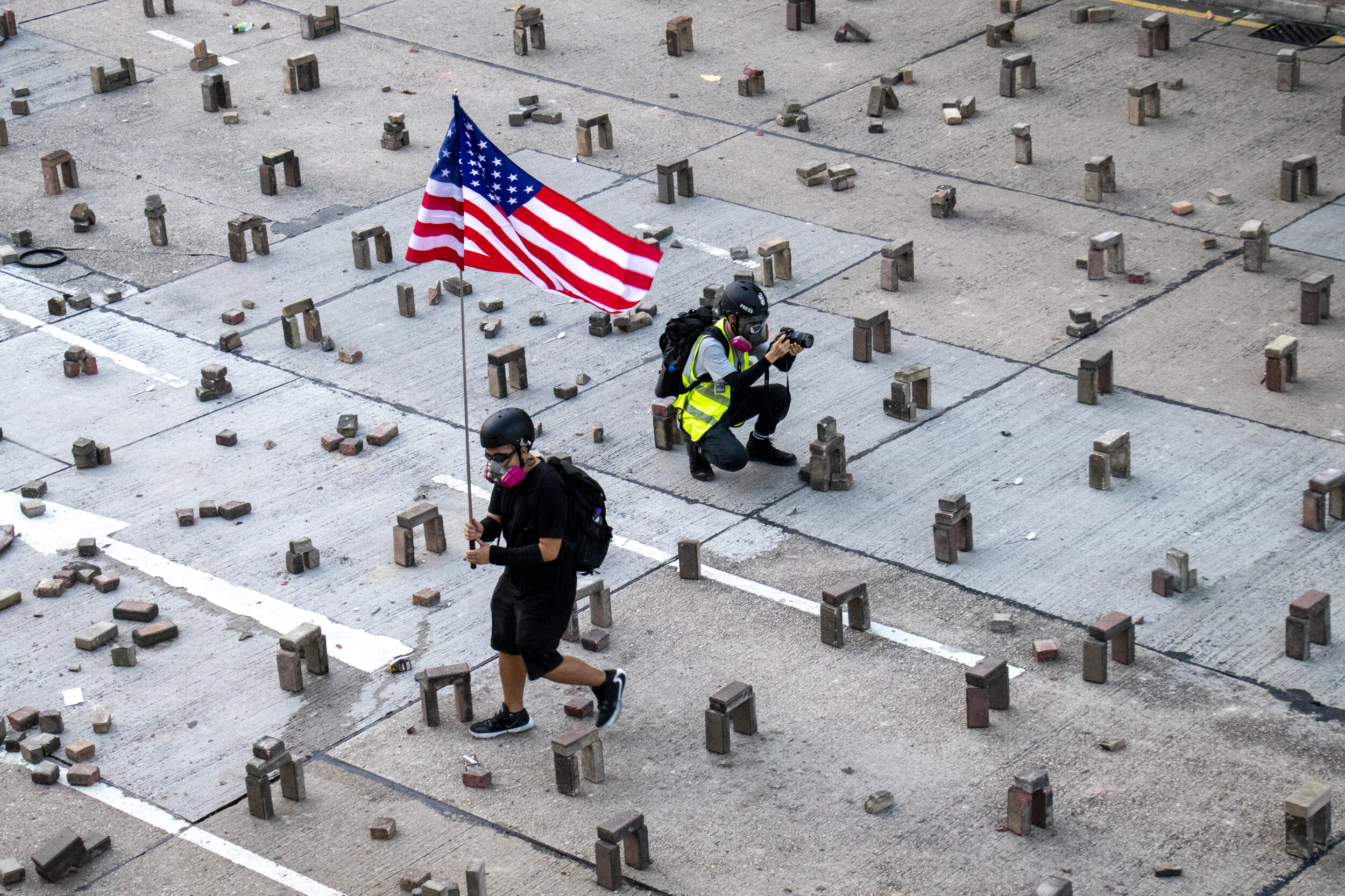

Flashpoint.
A thriller fan can somehow predict the ending of a suspense movie by watching only the first five minutes of it. I had seen countless big and small marches, rallies and protests in Hong Kong, but there was just no way for me—and almost everyone in the city—to foresee the ending of this one.
Even after approximately one million people marched against the extradition bill on 9 June 2019*, Hong Kong Chief Executive Carrie Lam made no concession. While I was watching her response to the march saying that she was going to proceed with the second reading of the bill, I had an odd feeling in my stomach. Standing in front of the TV, I told my mom "this wouldn't end well."
The last time a protest had a turnout of a million people was marching in solidarity with the students in Beijing during the 1989 Tiananmen movement. The crackdown on the movement ended up prompting Hong Kong people to gather religiously, every year on that day, mourning the deaths of the protesters.
This was not a city that would take outright disdain sitting down.
*estimated by the organizer- Civil Human Right Front
Description:
The photos and the audio bring you back to the moment that student protesters broke up bricks to build small barricades on an avenue outside of Hong Kong Baptist University. Some of the most fierce clashes between the protesters and the police happened on university campuses in November 2019.

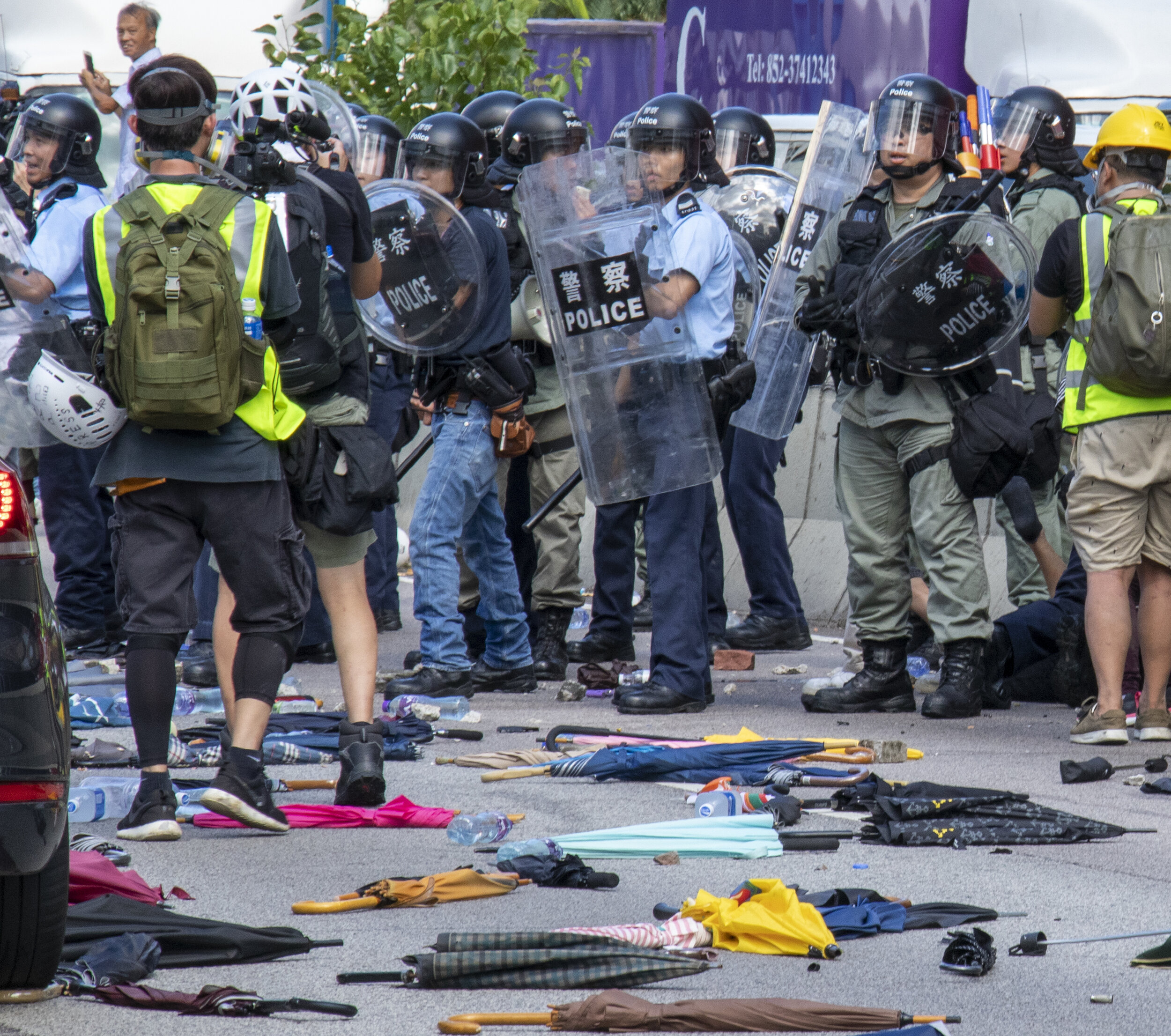
On to the Battle.
Then, the one-million-people march turned into a larger march with a turnout of two million. The two-million-people march then evolved into government headquarters sieges, airport sit-ins, cross-industry strikes, guerilla-style street protests, shop boycotts, human chain demonstrations, and violent campus standoffs.
Protest slogans, projectile umbrellas, burning barricades, and Molotov cocktails were met with police warnings, teargas, rubber bullets, and live ammunition. Blood was shed. Eyes were blinded. Lives were taken.
Those tragic scenes slipped into people's nightmares, tore cross-partisan families apart, and scarred people's souls. A study at the University of Hong Kong found that one in five adults reported probable depression or suspected PTSD. The rate was comparable to numbers recorded in armed conflict zones.
The city had reached the verge of collapse. Yet, neither side conceded. When Lam formally suspended the extradition bill in September 2019, it was too late. The protesters asked for something more, something that was never on the table–genuine democracy.
Description:
The photos and the audio bring you back to a scene of a city-wide strike in August 2019. The front-line protesters chased and threw umbrellas to the police as the crowd chanted “ gangsters” to call out police’s use of violence.
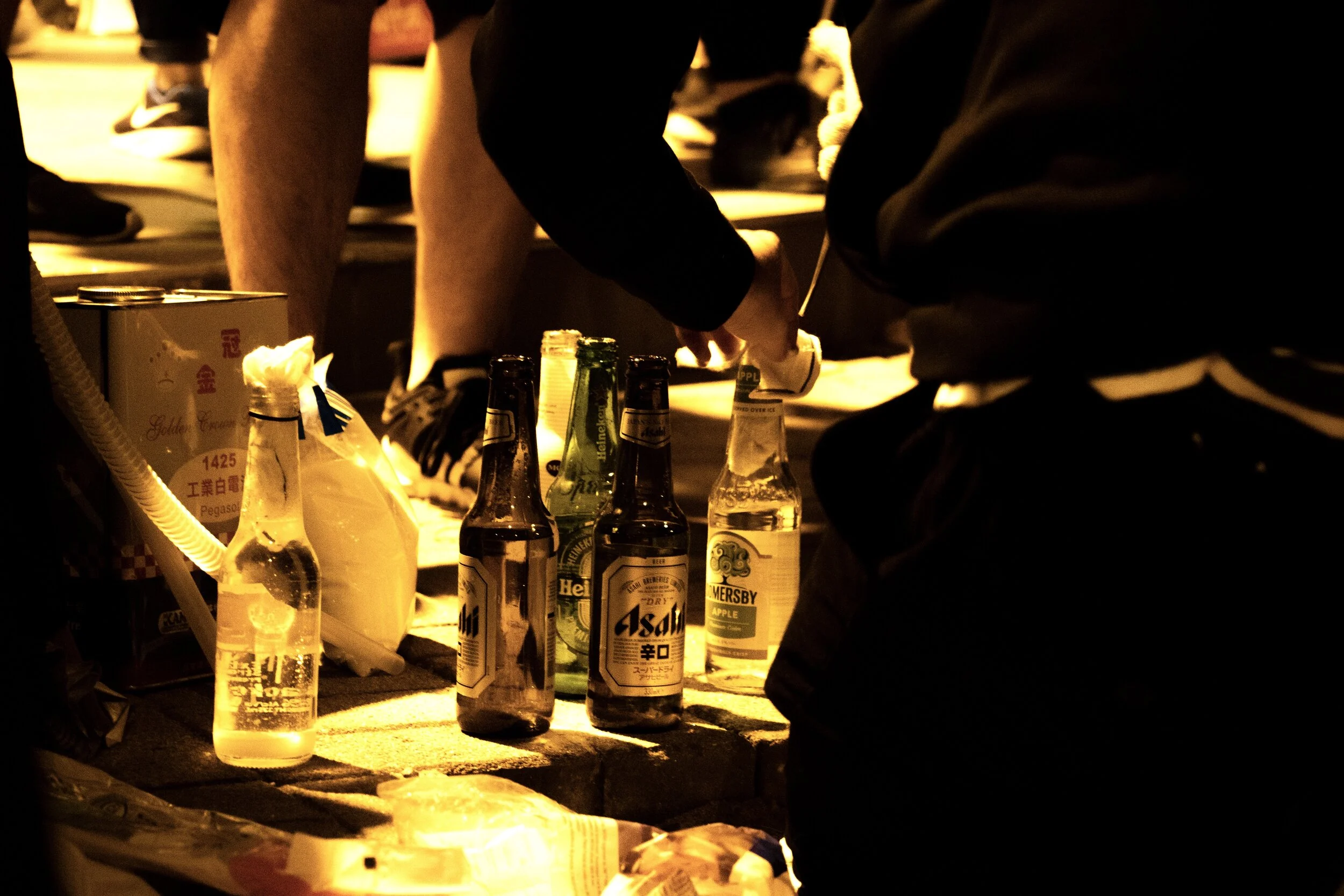

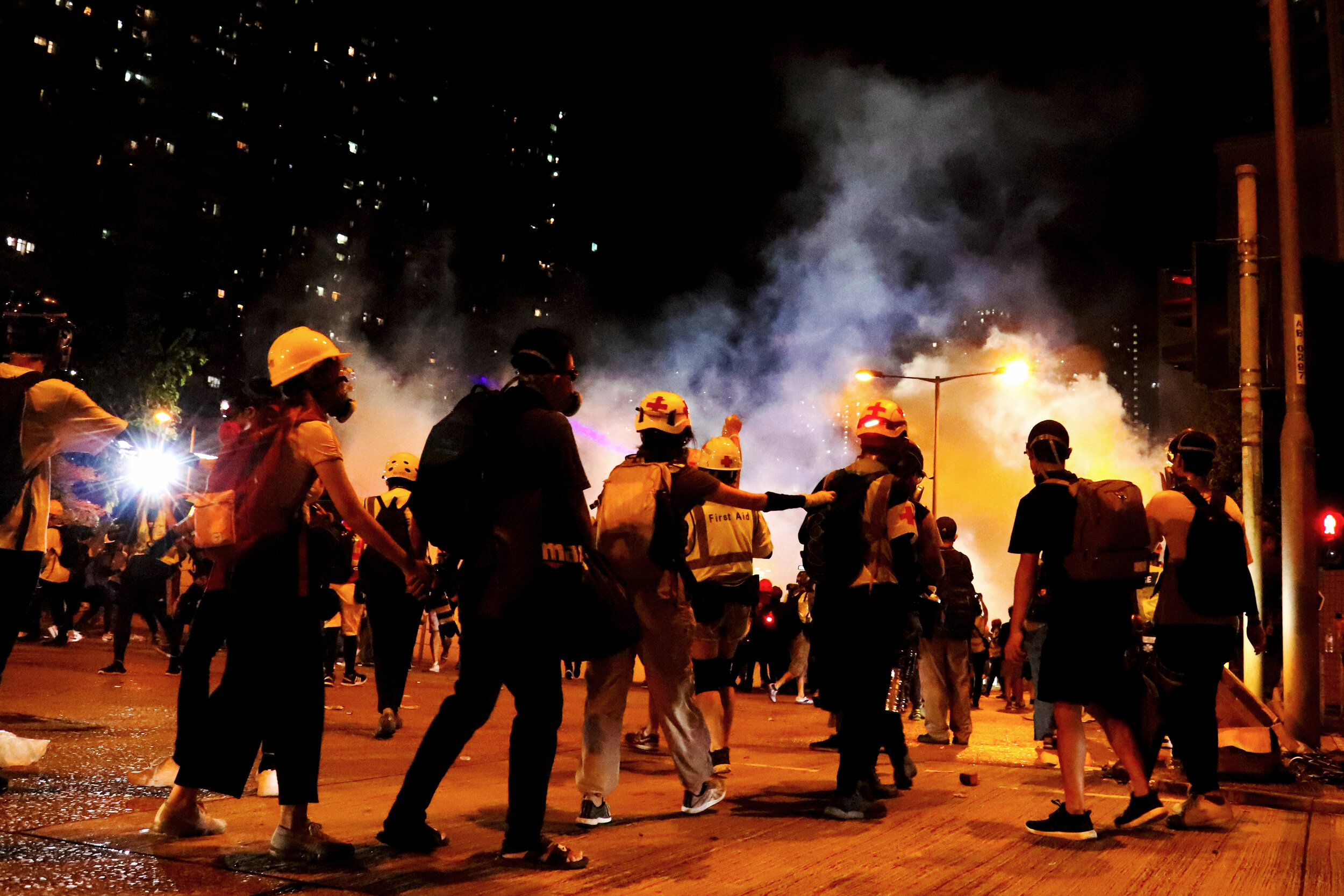
Settle the Score After the Fall.*
After a group of hardcore protesters were routed in a series of intense, violent escalations on university campuses, the movement went into a deadlock.
Then, COVID-19 crashed in. Fears of another SARS-like epidemic petrified the city and scattered the movement. People retreated from the protests and went home. Medical masks replaced the gas respirators on their faces. The hectic protest sites turned quiet.
To Beijing, the best time to strangle the movement had arrived. While the police were carrying out mass arrests in the background, Beijing planned to bypass the Hong Kong legislative body and impose the national security law. No details of the law were announced before the enactment. Yet, many already saw it as the final nail in the coffin of the city's freedom.
*originated from a Chinese saying 秋後算帳. Literally, it means to settle accounts after the autumn harvest. It is used to describe the act of taking revenge after the passing of the incident.
Description:
The photos and the audio bring you back to the moments when police fired rounds of tear gas to a crowd of protesters. Tear gas had been used to dispersing protests so frequent that Hong Kong was named “the city of tear gas.”
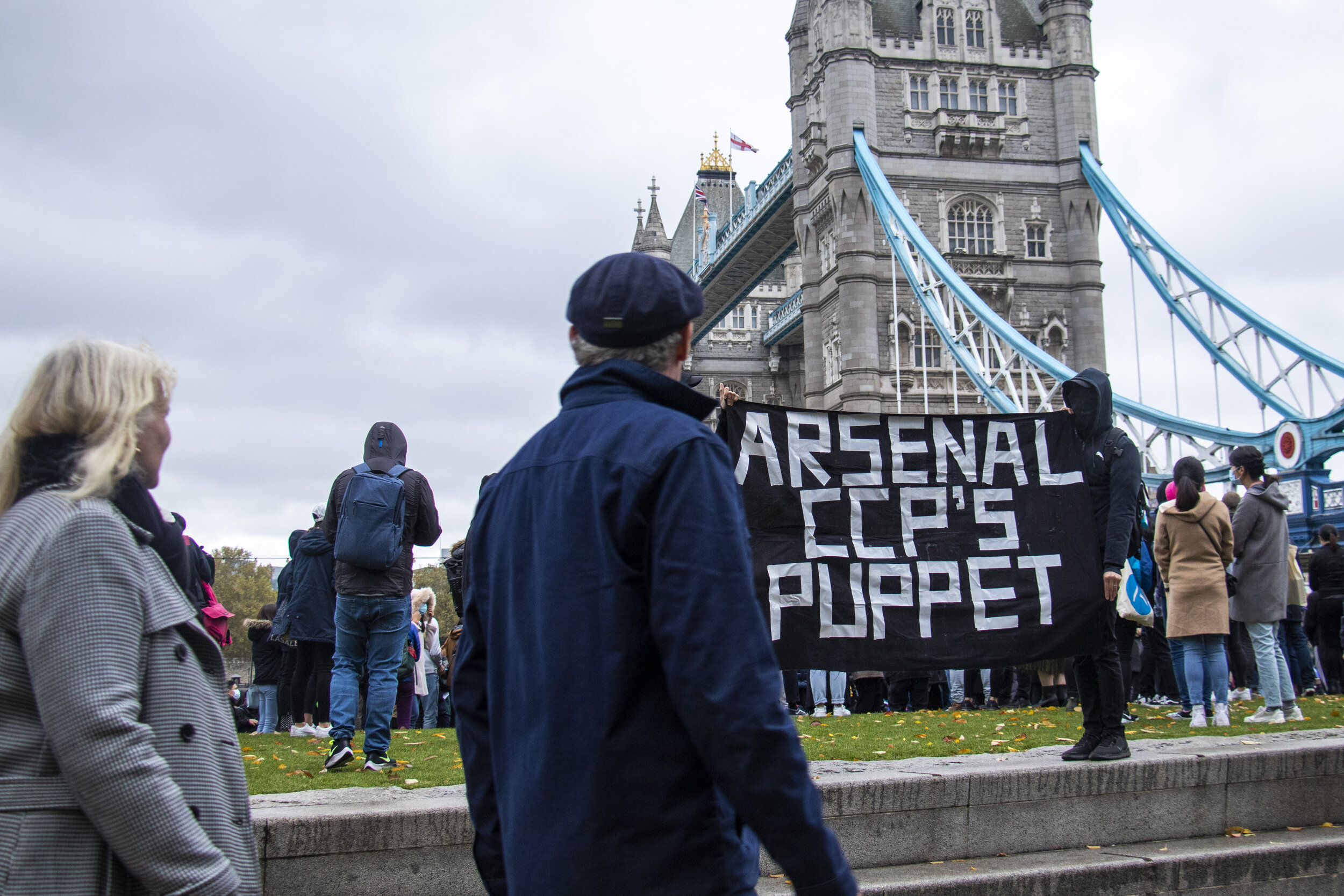

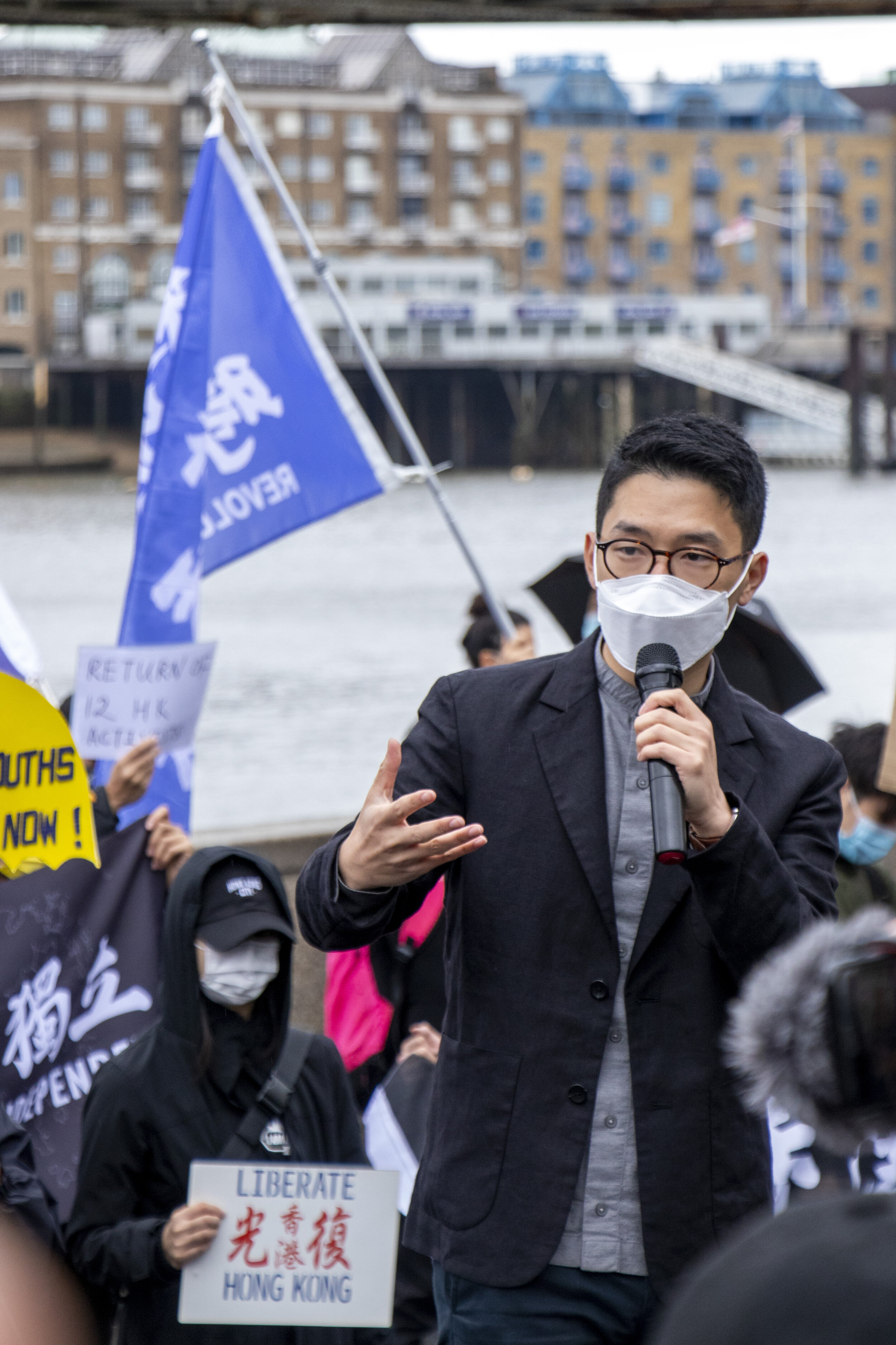
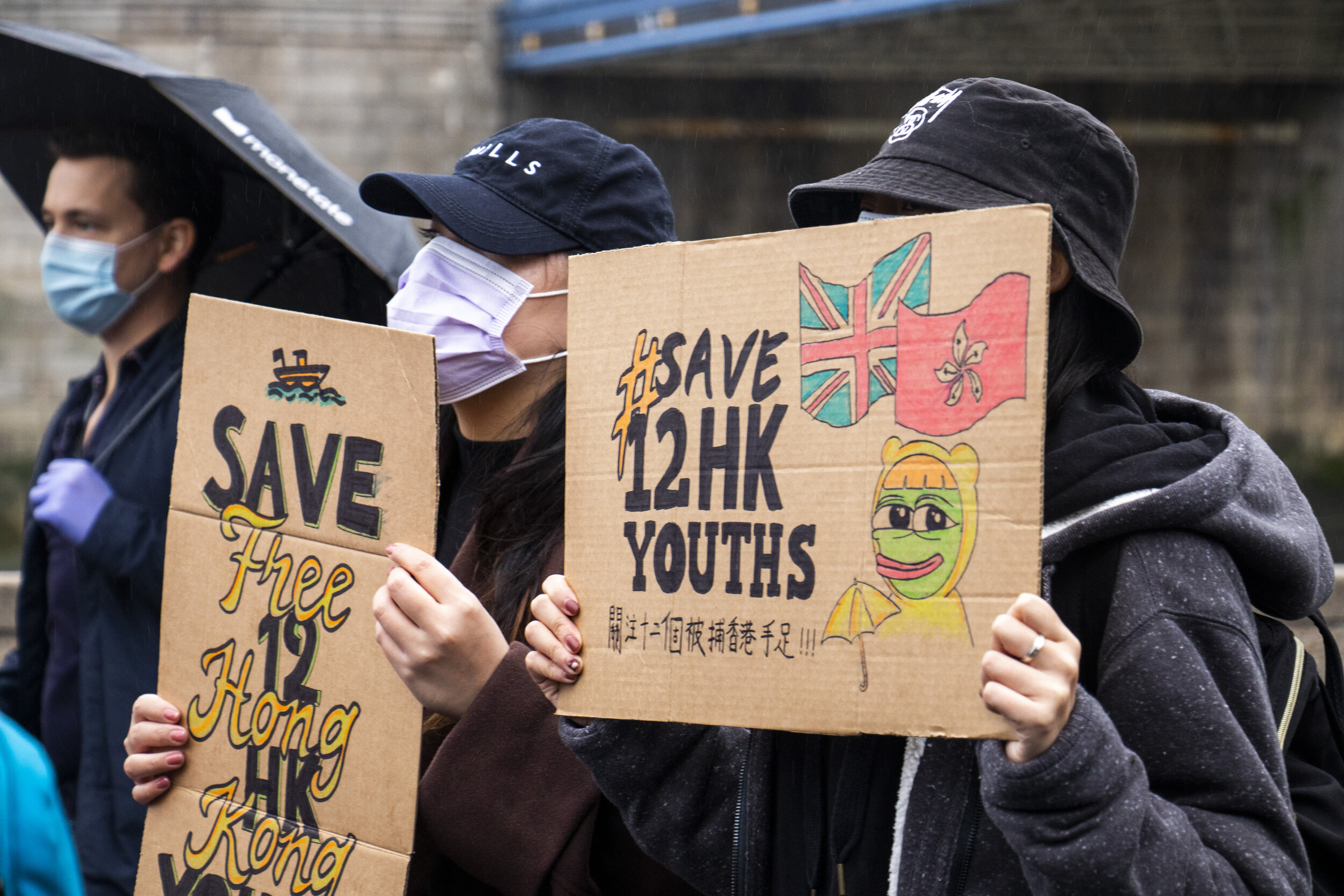
A battle yet to be won.
The ending of this thriller had finally sunk in.
On 27 May 2020, the United States announced that Hong Kong is no longer autonomous. On 30 June 2020, the Standing Committee of the National People's Congress of China passed the national security law unanimously, banning acts that Beijing deemed as secession, subversion, terrorist activity, and collusion with foreign powers.
The definitions of these acts are obscure. The jurisdiction of the law stretches out to every country in the world.
According to the Sino-British joint declaration, the treaty that guaranteed Hong Kong's autonomy, this moment should not have arrived before 2047. But Beijing decided to quell the protests by bringing an all-out closure to the liberal society.
When the push notification of the announcement appeared on my phone, it felt like a professor abruptly brought forward the deadline of an end-of-term essay to that very day. The worst thing was that it happened after the class fight through hell or high water to plead for an extension.
Since the imposition of the national security law, hundreds of thousands of Hong Kong people have made plans to move out of the city. They hope their efforts of tossing their lives to start from scratch in a foreign land can earn them a breeze of freedom.
But there will always be a hint of sourness in the breeze, softly reminding them of the battle that is yet to be won at home.
Description:
The photos and the audio bring you back to the “Global Solidarity with 12 Hong Kong Youths” rally in London in October 2020. The mainland China authority detained twelve Hong Kong young people after arresting them for fleeing Hong Kong by boat. Around a hundred people showed up in London, calling for the authority to transfer the youths back to Hong Kong and grant them a free trial. In the rally, the participants sang a protest anthem that they might not be able to sing in Hong Kong.

